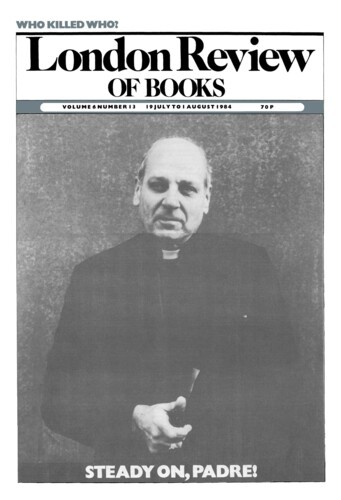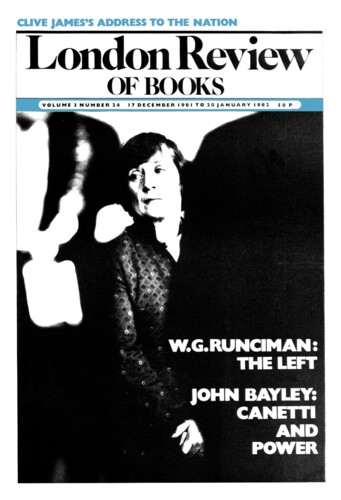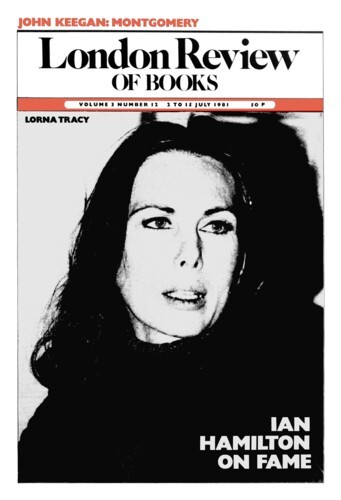Diary: Regarding Foucault
Alan Sheridan, 19 July 1984
Four or five years ago when I was writing my book on Foucault, I began the conclusion with a demur: ‘It is curious enough to write about an author who could well produce more books than he has already done, without drawing conclusions about his oeuvre.’ I confess that at the time I did not really believe my prognosis. The achievement already seemed more than one could reasonably expect of one frail human being. There was also a detectable slowing down in the rate of published books. He lectured, wrote articles, gave interviews as tirelessly as ever, but the years went by and the brief first volume of the Histoire de la Sexualité, published in 1976, was still without its projected sequels. As the world’s eyes turned increasingly upon him, he seemed more and more reluctant to commit himself to the permanence of print. Most of one and about half of another of those ‘Sexuality’ volumes had been written and abandoned. Then, in 1977, a taxi ran him over in front of his apartment building, leaving him with hundreds of glass splinters embedded in his head: for a year he suffered from nausea and giddiness. I saw him last in February of this year. His appearance came as a shock: he now looked a good ten years older than he was. He had apparently fallen ill after his return from San Francisco the previous summer. He had lost several pounds in weight. The doctors, he told me, did not know what was wrong with him. Among other possibilities he talked about AIDS, only to dismiss it. Fighting illness and lassitude, he had corrected the proofs of the two further volumes of the History of Sexuality, which were to be called, respectively, L’Usage des Plaisirs and Le Souci de Soi. Their titles have a tragically ironic ring.



